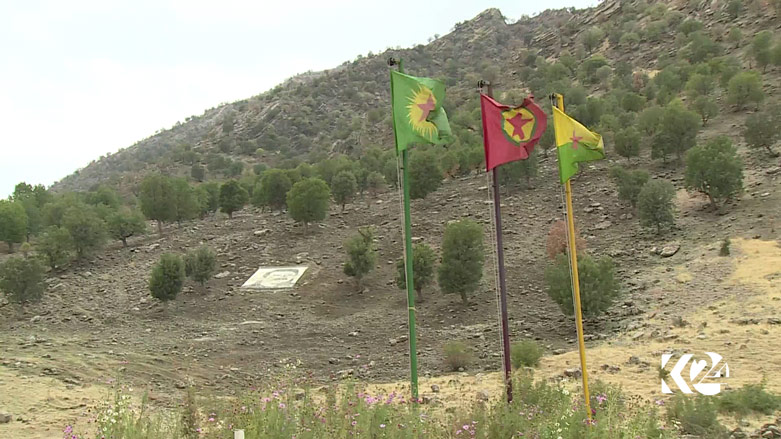PKK offshoot party levies taxes on villagers: official
A Kurdistan Workers’ Party (PKK) offshoot group is levying taxes on Kurdish villages near the border areas between the Kurdistan Region, Turkey, and Iran, locals claim.

ERBIL (Kurdistan 24) – A Kurdistan Workers’ Party (PKK) offshoot group is levying taxes on Kurdish villages near the border areas between the Kurdistan Region, Turkey, and Iran, locals claim.
“Taxing is not new. From the start of PKK’s arrival in these areas… they demand levies on livestock owners, local farmers, and nomads who come to the area,” Ihsan Chalabi, head of Sidakan subdistrict which belongs to Erbil Province’s Soran District, told Kurdistan 24.
During the summer, residents of villages from hotter regions move to mountainous areas where the weather is colder to feed their livestock. And it is during this movement that these travelers claim the PKK-affiliated forces are requesting payments from them.
“They told me for every 100 animals that I own I have to hand over two as a tax. Otherwise, you have to leave this land and go back to your village,” a villager told Kurdistan 24 on condition of anonymity.
Kurdistan 24 received an exclusive photo of what appears to be a bill of one of these “aid” levies that owners of livestock, bees, and farmers pay.

The issuer of the bill is a political party by the name of Freedom Movement of Kurdistan Society (FMKS), established in 2014 by many members of the then dissolved Kurdistan Democratic Solution Party (PÇDK).
Kurdistan 24 could not immediately confirm the authenticity of the photo with FMKS.
PÇDK was a political party under the umbrella organization of Kurdistan Communities Union (KCK) and was considered the Kurdistan Region’s branch of the PKK.
FMKS is an officially registered political party in Iraq. The case is not the same for the Kurdistan Region, and for this reason, the Judicial Council did not accept their application for the Sep. 30 regional parliamentary election.
They condemned the court’s decision.
Turkey regularly shells PKK bases in Kurdistan, as the NATO ally considers the group a “terrorist organization.”
PKK bases are present in multiple locations in the mountainous areas of the Region’s border with Turkey and Iran.
Locals often complain about PKK bases being set up in their villages, stating their presence attracts Turkish airstrikes and creates instability which causes enormous damage to their agricultural lands.
Editing by Karzan Sulaivany